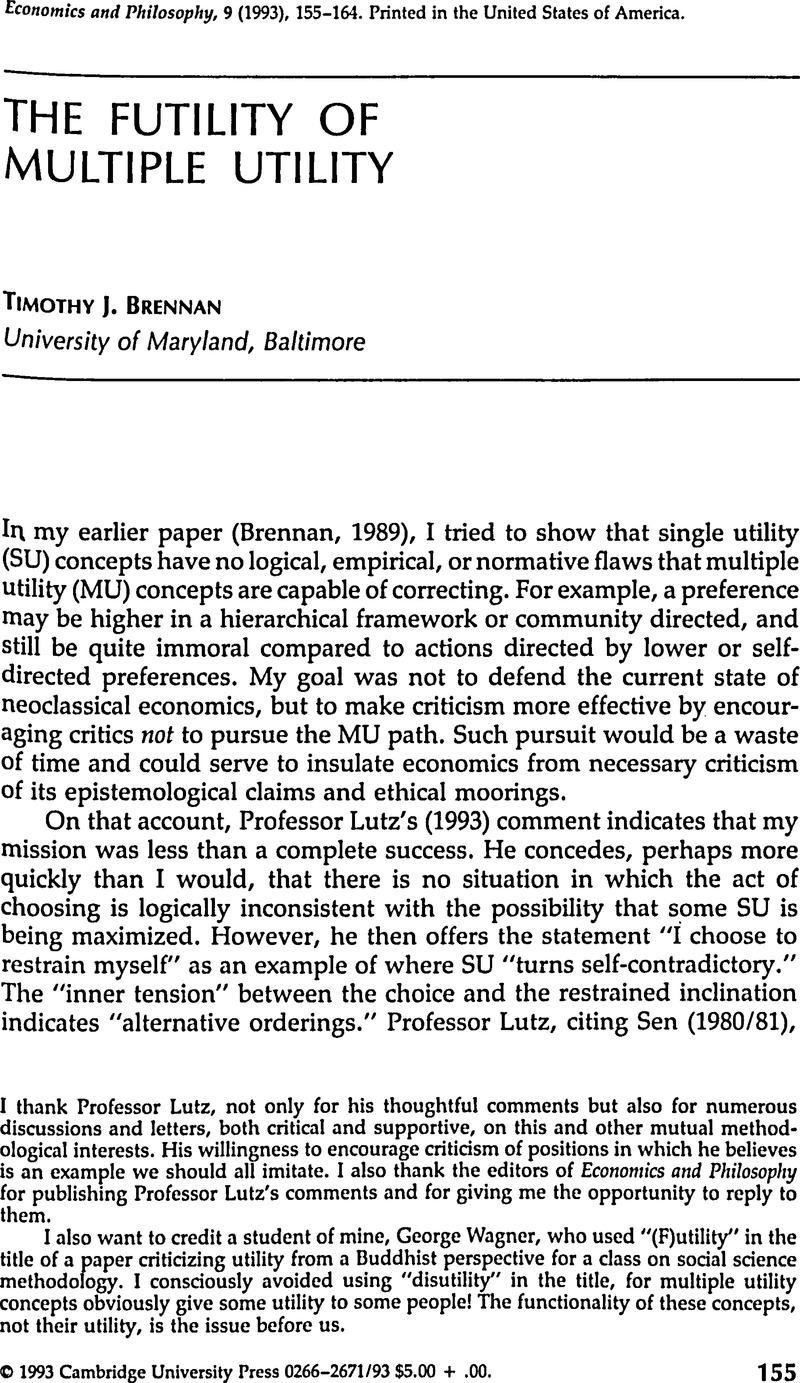Crossref Citations
This article has been cited by the following publications. This list is generated based on data provided by Crossref.
Lutz, Mark A.
1993.
Cardinal Issues in the Future of Social Economics: A Humanistic View.
Review of Social Economy,
Vol. 51,
Issue. 4,
p.
455.
Lutz, Mark A.
1994.
INSTRUMENTAL RATIONALITY AND THE HUMAN DIMENSIONS.
Humanomics,
Vol. 10,
Issue. 4,
p.
49.
Stewart, Hamish
1995.
A Critique of Instrumental Reason in Economics.
Economics and Philosophy,
Vol. 11,
Issue. 1,
p.
57.
Yee, Albert S.
1997.
Thick Rationality and the Missing "Brute Fact": The Limits of Rationalist Incorporations of Norms and Ideas.
The Journal of Politics,
Vol. 59,
Issue. 4,
p.
1001.
Mooney, Gavin
1998.
“Communitarian claims” as an ethical basis for allocating health care resources.
Social Science & Medicine,
Vol. 47,
Issue. 9,
p.
1171.
Minkler, Lanse
1999.
The Problem with Utility: Toward a Non-Consequentialist/Utility Theory Synthesis.
Review of Social Economy,
Vol. 57,
Issue. 1,
p.
4.
Casey, Frank
and
Lynne, Gary D.
1999.
Flexible Incentives for the Adoption of Environmental Technologies in Agriculture.
p.
229.
White, Mark D
2004.
Can homo economicus follow Kant’s categorical imperative?.
The Journal of Socio-Economics,
Vol. 33,
Issue. 1,
p.
89.
Dietrich, Michael
and
Rowen, Donna
2005.
Ethical Principles and Economic Analysis.
Journal of Interdisciplinary Economics,
Vol. 16,
Issue. 3,
p.
247.
White, Mark D.
2006.
Multiple utilities and weakness of will: A kantian perspective.
Review of Social Economy,
Vol. 64,
Issue. 1,
p.
1.
Braman, Sandra
2006.
The micro‐ and macroeconomics of information.
Annual Review of Information Science and Technology,
Vol. 40,
Issue. 1,
p.
3.
Lehtinen, Aki
2013.
Preferences as total subjective comparative evaluations.
Journal of Economic Methodology,
Vol. 20,
Issue. 2,
p.
206.
Davis, John B.
and
McMaster, Robert
2014.
Situating Care in Mainstream Health Economics: An Ethical Dilemma?.
SSRN Electronic Journal,
DAVIS, JOHN B.
and
McMASTER, ROBERT
2015.
Situating care in mainstream health economics: an ethical dilemma?.
Journal of Institutional Economics,
Vol. 11,
Issue. 4,
p.
749.
Lynne, Gary D.
2020.
Metaeconomics.
p.
75.



